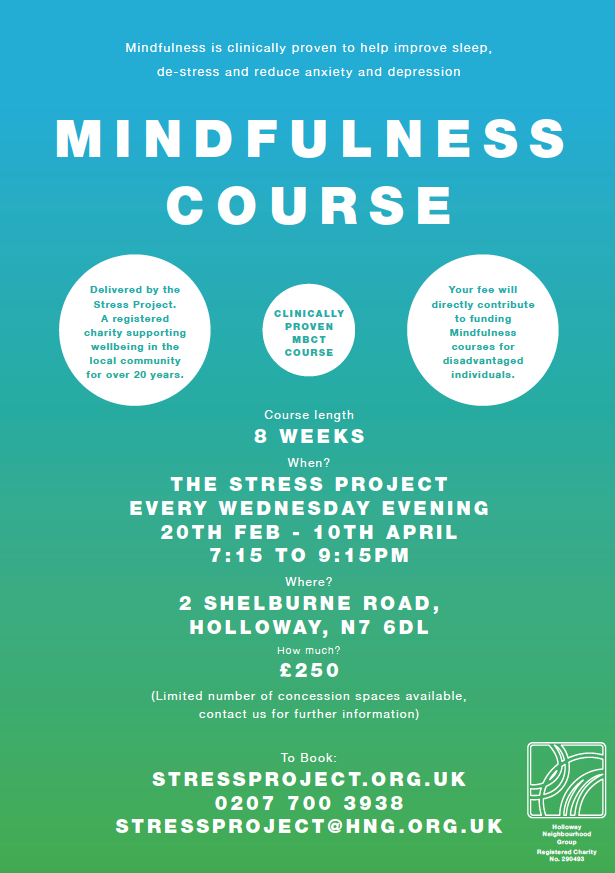| One of our volunteers, Anisha, had a chat with our Mindfulness teacher - Philip recently. The conversation covers a range of topics, including what is MBCT Mindfulness, how Mindfulness can be benefital in the workplace and how it can be used to beat the January blues? Read part 1 of the interview below. Anisha: 'What is Mindfulness Cognitive Behavioural Therapy?' Philip: 'Mindfulness is as simple as making the conscious choice to be in the moment and non-judgemental. Although it may sound simple, when people come to try and practice it, they may find it challenging. People who are depressed are often going over past events in their head. This is called rumination. People who are anxious are often worrying about future possibilities that most of the time won’t happen. The key is to live life in the now and then you can experience life itself. If you’re not in the moment, you are living in a world that you’ve created in your own head. The CBT element of the course helps us to challenge unhelpful thinking patterns. The most useful thing is learning when to notice when mind has wandered and being able to come back into the moment. Our mindfulness CBT course can help with depression and chronic anxiety in order to prevent relapse.' Anisha: 'Why is it a good quality course?' Philip: 'Mindfulness and CBT is proven to be a safe and effective. At The Stress Project, we have monitored the results over time and though we cannot prove any “miracle” cures, the overall results are strong. Our previous mindfulness courses have typically resulted in anxiety levels dropping by 40% and depression levels dropping by 50% across the group (individual results will vary). It’s helped a huge number of people from a wide range of backgrounds, regardless of age range, gender, ethnicity or religion. The course can help people from all educational backgrounds and abilities. All it requires is a willingness to embrace it.' Anisha: 'What other benefits are there from doing the course?' Philip: 'Not only is psychological health likely to be improved, studies show that this can have further benefits on physical and social health. We cannot promise individual results but there is a very strong evidence base that a wide range of health benefits can flow from mindfulness practice.' Anisha: 'How can mindfulness be beneficial in the workplace?' Philip: 'Mindfulness is taught now at top business schools as it helps improve mental resilience. Resilience is the reserve of mental health stamina. The more resilience we have the better placed we are to handle what life throws at us. Teaching mindfulness in the workplace can help reinstate the natural processing and rebalancing of emotions in employees, improving general health and wellbeing. You don’t have to be ill to be on the course – it’s like a flu jab. It’s a preventative measure that can help employees deal with stressful situations.' Philip is leading the forthcoming evening Mindfulness course starting on 20th February. To enrol please visit www.stressproject.org.uk/mindfulness |
|
0 Comments
Your comment will be posted after it is approved.
Leave a Reply. |
Archives
January 2024
Categories |



 RSS Feed
RSS Feed